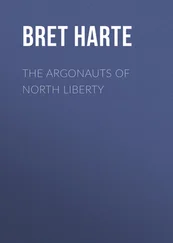I thought of Benjamin, miles away by now. He wasn’t safe, far from it. The Brotherhood were the city; they embodied its density and the hive-mind of its underground. I had no doubt that if Benjamin was foolish enough to linger in the streets, they would find him and do unspeakable things to him. A futile yearning tugged at me, that perhaps Ismail would come around and renounce his ways. Come out in a grand way to his twisted brethren and denounce them as zealots and gangsters. That Benjamin would make an escape of Bondesque proportions and row past the Horn of Africa to Brazil. Row and row and row until his muscles bulged and his damningly pale skin was slow-roasted to a comforting brown. Impossible dreams. Dreams of a child huddled by his father’s wicker chair.
I got a text then, from Omar. I hadn’t seen him since the events of the night before. It was short and devoid of unnecessary prose. I’m so sorry, I just heard, it said, but I cannot be a part of this any longer. My faith will not protect me if I fraternize with infidels and friends of Zionists. I am sorry and take care. Please delete this number.
I didn’t reply. I couldn’t. I regretted, then, not paying more attention to Omar’s absences. I had no doubt that deep down, there was not a shred of maliciousness in his soul but I had become too wrapped up in Sabah, in Tahrir to dispel the nothings whispered in his ear. I had neglected him and I had lost him, and I could only hope he stayed clear of trouble.
Youssef joined us not long after and we sat for hours. The policemen came and asked their muted questions, a faint buzzing in my ear. Yes sir no sir yes sir no sir. Youssef had come better prepared and paid the appropriate bribes to avoid further harassment. Amm Attia made us some tea, without mint this time. The flames sputtered and died and the coals burned low.
Ahmed Khalifa is an Egyptian student at Columbia University and graduating soon. He hopes this whole writing thing will work out.
House of Refuge
Michael DiBaggio
This second place-winning story is a tour-de-force set in a rich, imaginative near future of seasteads, anarchic international agencies, and high-seas adventure.
It was four o’clock in the morning when the electronic chime of the boat gong jolted Justin Agnarsson from his hard-won sleep. He blinked blearily at the flashing blue light on the overhead, wondering where and when he was and why he should not just roll over and go back to sleep. The scent of saltwater and the gentle pitching of his bed reminded him that he was on duty, and as stationkeeper he always would be. He slung himself off the mattress and began the mechanical motions of dressing while he watched the small monitor atop his bureau. The video feed from the well dock showed him the cause of the disturbance: a long hulled RHIB run up on the ramp and two stumbling figures in orange rain slicks tying a mooring line. A quick glance at the meteorological panel reported only light rain, a westerly wind of 17 knots and a wave height of only three feet.
’Hardly shipwreck weather,’ he thought. He checked a second monitor for distress beacons, but there were none. It had been almost a month since anyone drifted to the refuge in need of assistance, and had it been the middle of the afternoon instead of the middle of the night, Agnarsson would have assumed it was a couple of old salts come aboard to share part of their catch and spin a yarn, and he’d have been grateful for the visit. At this hour, he had no idea what to expect. Out of habit, he took his sidearm off the bureau and holstered it, then finished dressing and ducked out the watertight hatch.
At the station store, he retrieved a medical kit, a gallon of fresh water, and a couple of thermal blankets. “Ahoy, lifeboat. How many souls aboard?” he called into the wall intercom.
He overheard muttering, snippets of a conversation in Spanish. Belatedly the answer came, a man’s voice, hoarse and tight. “ Dos. ”
He frowned. That lifeboat was easily big enough to hold a dozen people. When asked in his own inexpert Spanish if they carried any fatalities, the reply was negative.
Agnarsson climbed down two ladders to the well deck, eyeing the two bodies huddled against the bulkhead. There was a man, tall but stooped, with his arm draped across the back of a younger girl, who hugged her knees and stared sullenly out to sea. Agnarsson guessed that she was 15 or 16 years old. He could hear their hushed whispers punctuated by bursts of sobbing.
He crouched beside them, handing them the blankets and water. “Are either of you injured? Where are you from?”
They shook their heads to the first question and provided no ready answer to the second.
“Should I expect more boats?”
“Just us,” said the man. He was stout and barrel-chested, with a thick red beard and the deep tan of a mariner. Agnarsson judged that he was at least a decade his senior.
“Where did you come from?” the stationkeeper repeated.
“Our home. It burned,” the man answered haltingly.
“I’m sorry,” Agnarsson said blandly. These little tragedies happened often enough that his condolences began to sound rote; it was a hard life living on the sea, and seastead fires were especially common.
“Well, we have food, clothing, and bunks above deck. I’ll try to make you as comfortable as I can until we can get you to land or another vessel. Do you…” He hesitated. He was about to ask if their seastead was insured. There was no question about helping people adrift on the sea, no matter where they came from or what their financial condition was, of course, but houses of refuge like this one didn’t run on good feelings alone. Whatever the answer was, it could wait, he decided.
“Do you have any family or friends I can get in touch with? On shore or at sea?” he asked.
The other man’s glazed eyes flicked over him, stared through him. The girl wept.
Agnarsson nodded stiffly, brushed his hand through his short blond hair. “Let’s get something warm into your bellies, then I’ll show you to your quarters. You can get changed and take a hot shower, whatever you need to do.”
“Thank you, sir,” the man said. Careworn lines around his eyes deepened as he asked, “Have you radioed about us yet?”
“Uh, no, not as yet. You caught me out of a dead sleep,” Agnarsson answered apologetically. “We’re supposed to have a crew of four, but right now this is a one-man operation.”
The castaway seemed encouraged by this news. “Please, sir, I have to speak with you before you make that report. It’s essential. Absolutely essential!”
Surprised by the man’s insistence, Agnarsson found himself nodding. “Very well. The report can wait until after breakfast.”
Agnarsson led his two guests into the galley and sat them down. As he rooted through the pantry, he wondered what the story would be, and whether he’d be offered a bribe for forgetting to make a report. Probably they did not have insurance and didn’t want to be hit with the bill for rescue. Or maybe they were smugglers, attacked by a rival crew, and they didn’t want any word of their survival getting out. Heaven knew there were enough smugglers and privateering operations in the 350-mile-long flotilla of seasteads and platforms known as the Plata Raft, a trade of misery and desperation fueled by the Brazilian-Argentine War. The grim situation ashore suggested other possibilities as well: maybe there was no seastead at all, and they were refugees or even escapees from a prison camp. Maybe they had escaped from the illicit traffic in human beings that still plied these waters. Agnarsson’s employer, Atlantic Littoral, rendered free assistance to war refugees and escaped slaves, but such people often preferred to keep a low profile, fearful of falling back into the clutches of their oppressors. Whatever the truth, the young stationkeeper prepared himself for a grim story. He brewed some coffee and loaded eggs, bacon, and instant potatoes into the AutoChef and returned to the table.
Читать дальше












